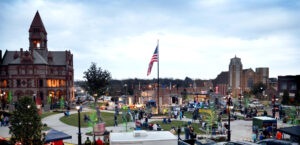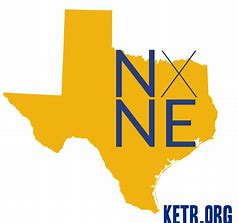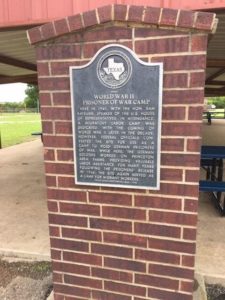SULPHUR SPRINGS, Texas — I got a major surprise early this afternoon as I arrived in this Hopkins County community on a story assignment for KETR-FM radio.
It was the appearance of what I consider to be one of the most spectacular small-town squares I ever have seen.
Sulphur Springs is a town of about 16,000 or so residents. It is the Hopkins County seat. I visited for a time with County Judge Robert Newsom about the impact that Cooper Lake is having on the county. What we didn’t connect was how the city and the county have combined to create a gleaming downtown district that is utterly brimming with activity, with color and personality.
The highlight of what I saw involved the massive veterans memorial in the middle of the city square.
The city has erected a memorial with specific exhibits remembering and honoring those who served — and died — in battle in virtually all the conflicts of the 20th and 21st centuries. I was drawn — quite naturally — to the Vietnam War segment of the memorial.
Once I took my eyes off the veterans memorial, I scanned the surrounding businesses and was struck by the absence — at least what I could see of it — of any empty store fronts.
Newsom told me about the courthouse, which the county renovated through a historic preservation grant that is a popular method of financing that counties have used for the past two decades or so. I mentioned to him how Randall County in the Panhandle acquired a grant to fix up the exterior of its 1909 courthouse building, but then left the interior of it empty. It is unused. Newsom couldn’t believe it. It’s true, I told him. The exterior looks fantastic and it has drawn many new businesses to the square in downtown Canyon.
Newsom said with emphasis that Hopkins County intended to make full use of its courthouse — which was built in the 1890s — when it was done. “It’s expensive to maintain,” he said, adding that it is worth the expense. Indeed, the Hopkins County Courthouse is a beautiful structure … that fits right in with what Sulphur Springs has done to its downtown district.
Readers of this blog perhaps know of my love for vibrant downtown districts. I have written about it many times here and when I worked for newspapers in Beaumont and Amarillo.
Man, oh man! Sulphur Springs has hit a grand slam home run with its downtown district.







